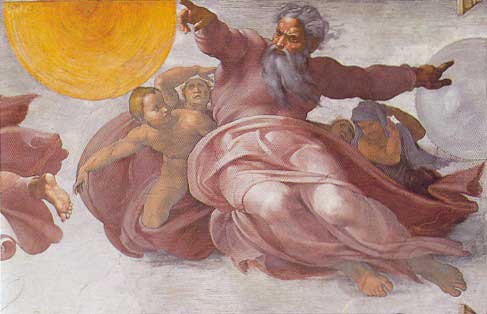
I no longer say I’m conservative in mixed company, and my reticence isn’t from what you might expect. I’m not avoiding opprobrium. I’m not quite cultivating tranquility either. It isn’t so much to avoid conflict as to avoid misunderstanding. The last time I mentioned that I’m conservative, casually and in the natural course of a conversation with the friend of a friend, the person asked whether that meant I believed in free market solutions to political problems. I might as well have been announcing a fealty to Gongorism or admiration for Sor Juana Inés de la Cruz. I don’t say I’m conservative because I don’t think people will understand quite what I mean.
The problem extends of course to self-styled conservatives as well. For in their hurry to respond to the progressive provocation of the day, they lose sight of what Russel Kirk considered the defining trait of conservatism: its resistance to ideology. Here Kirk’s exact words are worth quoting:
"Conservatism, I repeat, is not an ideology. It does not breed fanatics. It does not try to excite the enthusiasm of a secular religion. If you want men who will sacrifice their past and present and future to a set of abstract ideas, you must go to Communism, or Fascism, or Benthamism. But if you want men who seek, reasonably and prudently, to reconcile the best in the wisdom of our ancestors with the change which is essential to a vigorous civil social existence, then you will do well to turn to conservative principles."
This is the gift Lasch gives to conservatives: A path to work ourselves back to principles rather than positions.
Kirk’s words are characteristically deceptive in their simplicity. His definition presents itself as something like a negative theology, its essence being defined by absence. But I think there’s also a positive definition to be found, even if its depth and dimensions are only suggested. What Kirk implies is that there is a real world beyond our thoughts, which our thoughts themselves are contained within. And he pushes back, moreover, against the notion that our desires, having the sensation of being exhilaratingly limitless, share that same characteristic with the world outside of our heads. What conservatism means then, as a base line, is the belief in a reality outside of ourselves which we must attempt to cohere with in some way. Or as Christopher Lasch, the social critic and historian often associated with an older Left spurned by the spirit of ‘68 puts it, “A movement calling itself conservative might [be] expected to associate itself with the demand for limits not only on economic growth but on the conquest of space, the technological conquest of the environment, and the ungodly ambition to acquire godlike powers over nature.” For Lasch, the rejection of ideology translates into a “demand for limits.”
A short biographical sketch of Christopher Lasch seems appropriate, even if not entirely necessary. Born in Omaha and educated at Harvard (where he roomed with John Updike) and Columbia, Lasch was one of those intellectuals from the provinces who take the moral utterances of the ruling class more seriously than they do themselves, and even have the audacity to judge them against it and find them wanting. His life was spent teaching and writing, first at the University of Iowa and then at the University of Rochester, where he became something of an institution. Early on he considered himself a man of the left, but true to the idiosyncrasies which would define his career, he was from the very beginning critical of the lineage the left chose for itself. In books such as 1965’s The New Radicalism in America: The Intellectual as a Social Type, Lasch accused American radicals of merely representing a sort of advance guard for socially and psychologically destructive forms of the capitalist ethos. By the 70’s these concerns had become full-throated condemnations of the untenable American left, in books such as Haven in a Heartless World: The Family Besieged and The Culture of Narcissism: American Life in an Age of Diminished Expectations. By the time of his death in 1994 it was safe to say that Lasch had made a point of defying easily discernible political categories. He had made a career out of avoiding the team sports aspect of American political writing. And in doing so, he had become one of the most astute American social critics of the Twentieth Century.
The culminating work of his career, and the one most useful to conservative self-understanding, is 1991’s The True and Only Heaven: Progress and Its Critics. Taking its title from a passage in Hawthorne’s “The Celestial Railroad,” the book is a richly difficult meander through the heft of American cultural and political history, with the theme of “progress” as its central character. If this book can be summed up simply, it’s that it tells the story of how Americans came to make an ideology out of progress.
The realization that progress had become reified into an ideology, Lasch explains in the introduction, had a profound effect on his own politics: “My old faith in the explanatory power of the old ideologies began to waver in the mid-seventies, when my study of the family led me to question the left’s program of sexual liberation, careers for women, and professional child care. Until then, I had always identified myself with the left.” It wasn’t so much that Lasch himself had changed all that much, he explains, but that the new iteration of the Baby Boomer left had abandoned the most attractive aspects of its own tradition, exchanging moral seriousness and an interest in communal well-being for the histrionics of “seekers of ‘existential’ authenticity.” Ironically the left, by defining its mission purely against the values of middle-class America, had become reactionary. And in its unqualified embrace of limitless personal freedom, it had become shallow, too.
Lasch believed that this shift in the American left, reverberating through all political positions, was predicated upon a fundamental misunderstanding of progress and a devaluing of limits. It’s important here to clarify precisely what Lasch means by making an ideology of progress. Of course improvement, moral and technological, is possible and often admirable. And Lasch isn’t necessarily confronting the idea of a secularized utopia here, either. Instead, he writes:
Once we recognize the profound differences between the Christian view of history, prophetic or millenarian, and the modern conception of progress, we can understand what was so original about the latter: not the promise of a secular utopia that would bring history to a happy ending but the promise of a steady improvement with no foreseeable ending at all. The expectation of indefinite, open-ended improvement, even more than the insistence that improvement can come only through human effort, provides the solution to the puzzle that is otherwise so baffling—the resilience of progressive ideology in the face of discouraging events that have shattered the illusion of utopia. The idea of progress never rested mainly on the promise of an ideal society—not at least in its Anglo-American version. Historians have exaggerated the utopian component in progressive ideology. The modern conception of history is utopian only in its assumption that modern history has no foreseeable conclusion. We take our cue from science, at once the source of our material achievements and the model of cumulative, self-perpetuating inquiry, which guarantees its continuation precisely by its willingness to submit every advance to the risk of supersession.
What Lasch describes isn’t the Marxist utopia, but the nihilist progressivism of the young Marx, who declared that everything which exists deserves to die. Not progress towards any specific goal, but change itself as the goal. It’s a radical embrace of permanent obsolescence, guaranteeing that “our scientific theories, our technology, our artistic styles and schools, our philosophies, our political ideals, our fashions” are imbued with an in-built sense of impermanence. “Whatever we can say about the future,” says Lasch, “it appears that we can safely take for granted its sophisticated contempt for the rudimentary qualities of our present ways.”
Lasch’s attempt to explain how we got here, how it came to be that we enshrined a churning vortex of limitless change as the animating logic of our culture, takes him back to the eighteenth century. For it was then that people began to argue in favor of indefinitely expanding productive capacities in order to fulfill the bottomless pit of human desires. It even began to be said by thinkers such as Adam Smith and Bernard Mandeville that the actual cultivation of insatiable desire was an unalloyed moral and social good. Lasch observes, “The assumption that our standard of living…will undergo a steady improvement colors our view of the past as well as of the future. It gives rise to a nostalgic yearning for bygone simplicity – the other side of the ideology of progress.” Here we have Lasch the historian at his best, sketching out the false dichotomies that cause our political discourse to meander endlessly around the same ideological cul de sacs. By confusing criticism and longing, so many self-styled conservatives unwittingly take progressive assumptions as their own. In Lasch’s words:
...a nostalgic view of the past gives us only a mirror-image of progress, a one-dimensional view of history in which a wistful pessimism and a kind of fatalistic optimism are the only points of reference...What is needed is a point of view that cuts through this inconclusive debate, calls the dominant categories into question, and enables us to understand the difference between nostalgia and memory, optimism and hope.
As Lasch shows, a counter-tradition does indeed exist, but finding it requires us to abandon many of our assumptions about the conservative-liberal debate, which has in historical fact been something more like a duet. Eric Miller describes this third option in his biography of Lasch, Hope in a Scattering Time, as “…through particular practices to cultivate an independence of mind and spirit that, structured within and by the community, could give a person the keenness to detect and the strength to resist the political and economic powers that sought always to enthrone themselves as the necessary ends of human life.”
We know and understand this countertradition by the name of populism. Its antecedents, however, go back at least as far as the Puritans, Lasch demonstrates, and include a long tradition of republican thought and even elements of radical democracy, as exemplified by the likes of Thomas Paine, who was himself critical of the destruction of the tradition of small craftsmen “producers.” Miller explains, “In the nineteenth century these varying populist trajectories melded oddly but powerfully to yield a ‘producer ethic.’” This ethic, still with us today in the most obvious if slightly altered and somewhat desiccated way, is of course the ethos of the lower-middle class. And it bears emphasizing that then, just as now, this ethos defies easy political classification. As Lasch writes, this “producer ethic” is “anticapitalist but not socialist or social democratic, at once radical, even revolutionary, and deeply conservative.” Which is all to say that for the majority, or at least a very large and vocal minority, of Americans, their political and social self-interest is best expressed as a kind of populism critical of both corporatism and the federal government. “Corporate capitalism,” writes Miller in characterizing Lasch’s thought, “buttressed by liberal cosmopolitanism had no chance of leading to a satisfying end. Americans might discover – rediscover – another past, another hope, and another way.”
One example of that rediscovery is Lasch’s rehabilitation of Ralph Waldo Emerson. Lasch, it turns out, is as sensitive and astute a reader of Emerson as Stanley Cavell. “Only a transcendentalist in the loosest sense,” writes Lasch, Emerson avoided the tragic sense of life so obvious in his friend Hawthorne, but at the same time wasn’t an idiotic optimist as so many of his critics have painted him. “No picture of life can have any veracity that does not admit the odious facts,” Emerson wrote. And Lasch, drawing heavily from his later writings and his essay “Fate,” places Emerson within the tradition of realistic skeptics of the ideology of progress, as understanding that “freedom lies in the acceptance of necessity.”
Calvinist theologians emphasized God’s “vindictive” sense of justice, the severe retribution of divine law, and in many ways Emerson marked a return to this much older (and much more popular among the people) sense of harsh delimits upon reality. All debts must be paid. The bill always comes due. “Men are better than their theology,” said Emerson, “…and this law of laws, which the pulpit, the senate, and the college deny, is hourly preached in all markets and workshops…” As Lasch summarized Emerson’s populist inclinations, “The people see more deeply into things than the official guardians of morality.”
“Emerson’s consistently skeptical attitude towards social reform has to be seen in the same light,” according to Lasch. And it’s true indeed that, besides the cause of emancipation, Emerson remained relatively aloof of the social causes of his day. “The disease with which the human mind now labors is want of faith,” he wrote. In this sense, and quite unexpectedly, Emerson anticipates T.S. Eliot’s criticism of liberal desires to make a world so perfect it doesn’t require anyone to actually be good. Emerson is acting as something of a stand-in for the populist impulse of high individual moral standards and respect for “genius,” as he puts it, against the cold and facile social calculations of an arrogant ruling class. “We are wary of gliding ghostlike through the world,” Emerson muses in his poetic vein. “We desire…to be touched by that fire which shall command this ice to stream, and make our existence a benefit.”
Seen from this perspective, Lasch has Emerson as more of a conservative than either the deluded neocons, who recognize no limit to the powers of the federal government to affect reality, or the nostalgic reactionaries, who buy wholesale into the other side of the liberal coin of progress. In his heterogeneity, Lasch embodies some of the greatest strengths of populist conservatism as it now exists. Or, perhaps it’s more accurate to say the shape that it’s returning to. At any rate, in his unwillingness to compromise with ideologues ostensibly on “either side” of him politically, Lasch was able to sketch out a way of being conservative which is more relevant to us today than many fusionist pundits of the recent past.
This, finally, is the gift Lasch gives to conservatives: A path to work ourselves back to principles rather than positions. He also provides an anti-ideological vantage point from which to rethink American history. Indeed Lasch, particularly in The True and Only Heaven, gives us a clear articulation of what Emerson, that other radical-conservative-populist, call him what you will, called Virtue, an “obedience to a higher law than that of our Will.” If there’s a more useful definition of what it means to be conservative, I’ve yet to hear it.

